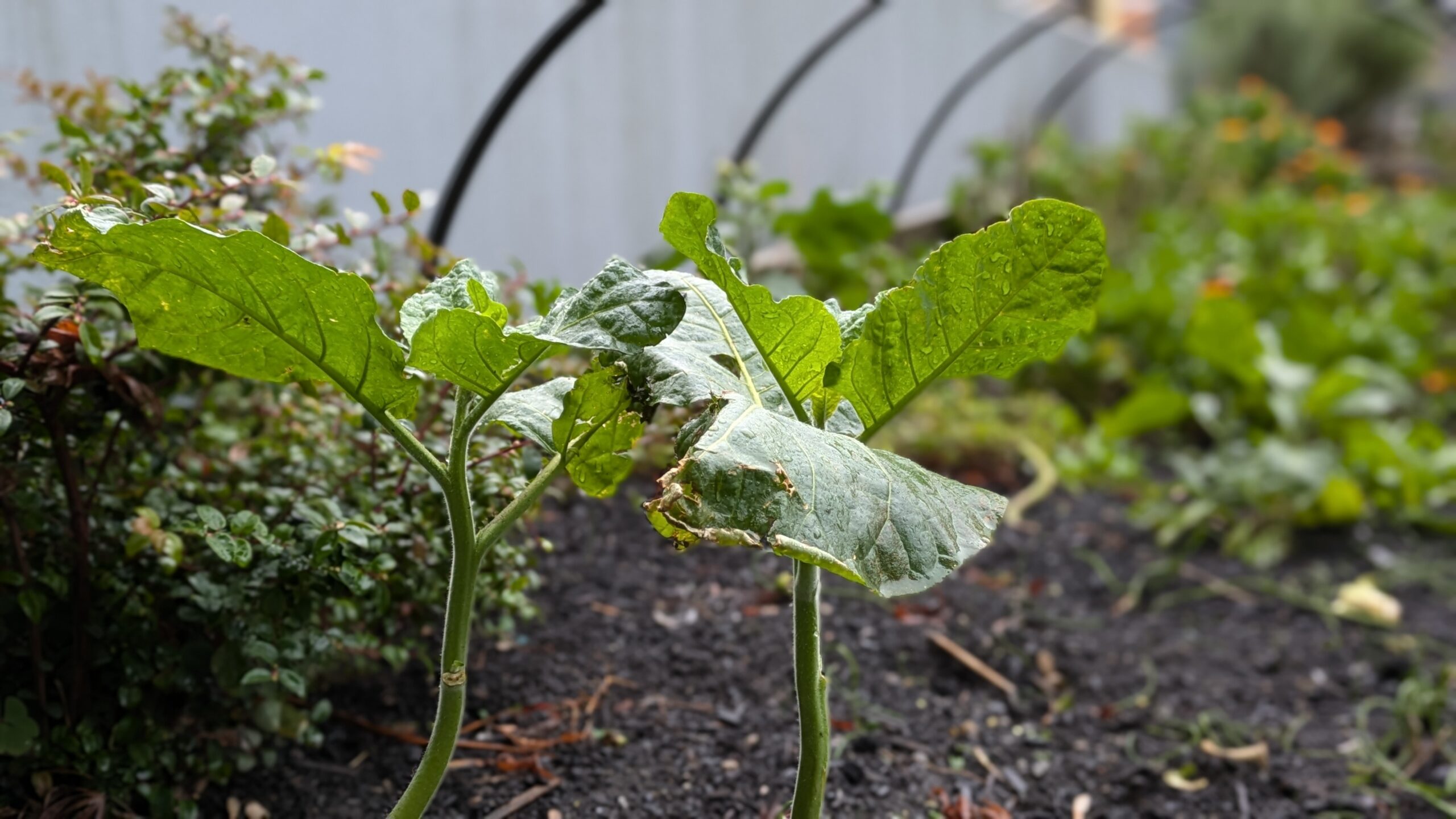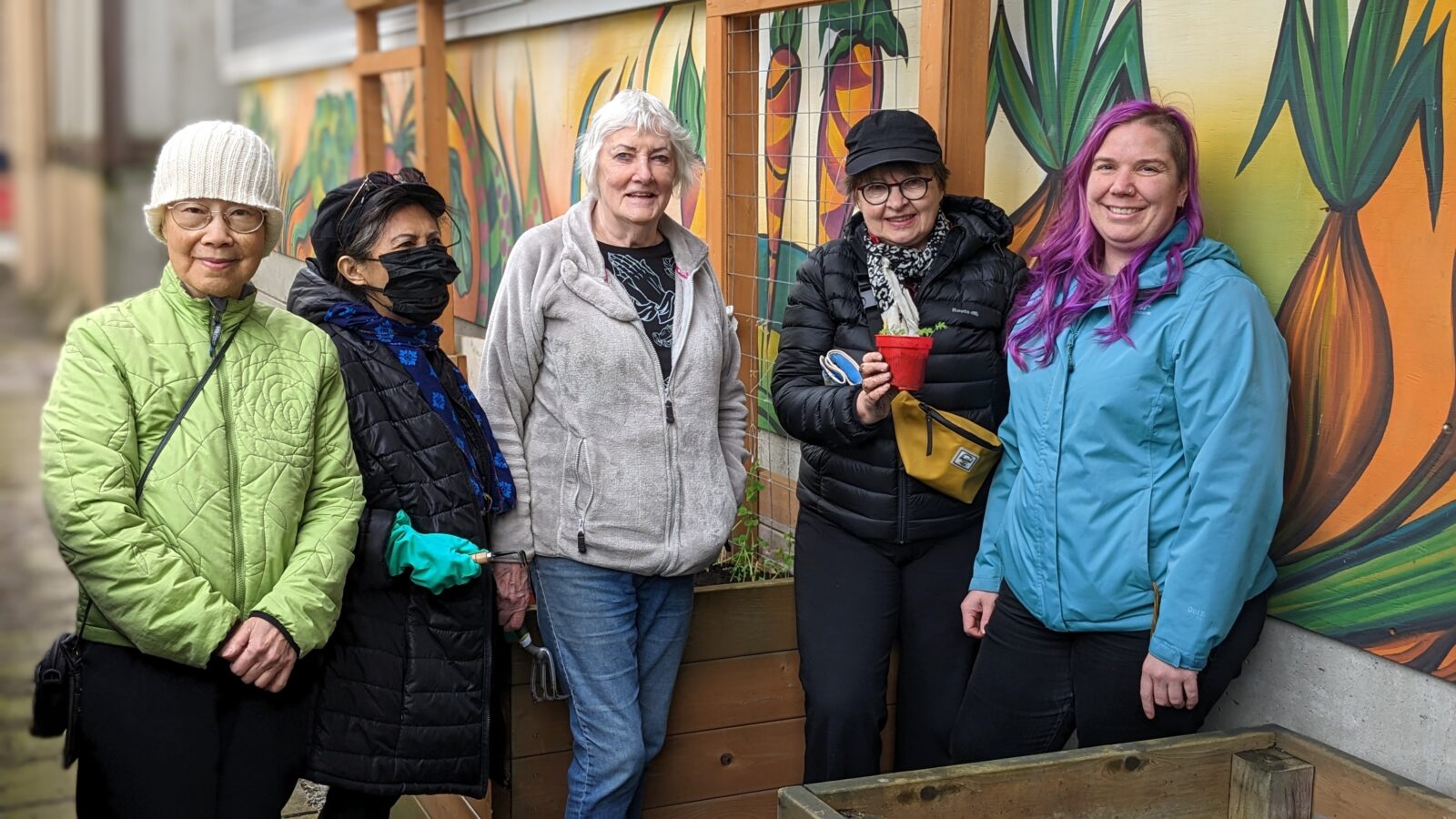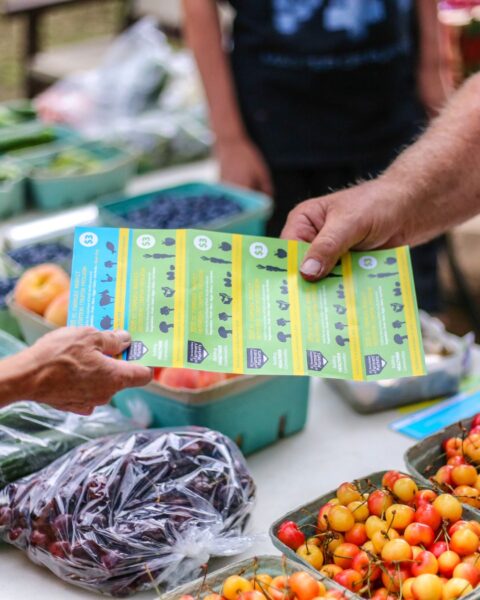Phone: 604-683-2554 | Email: welcome@gordonhouse.org
Cultivating Respect: Growing Tobacco Leaves to Honour Indigenous Knowledge Keepers

Amid the kale, tomatoes, and flowers flourishing in Gordon Neighbourhood House’s community gardens this summer, something truly special took root. Volunteers cultivated tobacco leaves—a crop of deep cultural and spiritual significance, traditionally offered to honour Indigenous Knowledge Keepers—adding a meaningful new dimension to the garden’s harvest.
The Role of Tobacco in Indigenous Cultures
Tobacco holds deep spiritual importance for many Indigenous peoples across Turtle Island (North America). Traditionally, it is offered as a gesture of gratitude, respect, and humility, particularly when seeking knowledge, guidance, or blessings from Knowledge Keepers and Elders. These practices reflect values of reciprocity and sacred relationships with the land, people, and traditions.
By growing tobacco in our community garden, we aim to support this tradition in a thoughtful, respectful, and sustainable way, recognizing its importance in cultural protocols. This initiative is more than a gardening project—it’s a step toward reconciliation, respect, and building meaningful connections with Indigenous neighbours and communities.

A Volunteer-Led Commitment to Reconciliation
Community garden volunteers—a dedicated and diverse group—embraced this initiative as a meaningful way to support reconciliation efforts. Under the guidance of Deanna Henry, our Community Garden Facilitator, they worked together throughout the season to nurture the tobacco plants with care and intention. From planting the seeds to harvesting and the leaves, the project became a shared journey of learning and growth. Volunteers took the time to understand the cultural significance of tobacco and the respectful practices for growing, handling, and presenting it, deepening their connection to the project’s purpose.
A Symbol of Respect and Collaboration
The tobacco grown in our garden will be carefully harvested and prepared as gifts to Indigenous knowledge keepers who generously share their wisdom and guidance with us. This gesture symbolizes our commitment to fostering genuine, non-tokenistic relationships and to building bridges between Indigenous and non-Indigenous communities.
Beyond the garden beds, this initiative has sparked conversations about reconciliation, cultural awareness, and the importance of Indigenous knowledge in our broader community. This initiative is also a reflection of our broader organizational dedication to Truth and Reconciliation. It reminds us that reconciliation is not just a policy or a statement—it’s an ongoing journey that requires tangible actions, respectful partnerships, and a willingness to listen and learn.
How You Can Get Involved
We invite you to be part of this meaningful initiative and contribute to the spirit of reconciliation:
- Volunteer in our Urban Growing Sites: Help us nurture not only the plants but also the relationships that grow alongside them.
- Learn with Us: Join our community workshops to better understand Indigenous traditions and practices.
- Support the Project: Donations of gardening supplies, seeds, funds, and tools help ensure the success of projects like this.
Moving Forward Together
As the tobacco leaves in our community garden reached maturity, they reminded us of the power of small, thoughtful actions to create ripples of change. Growing tobacco is not just about cultivating a plant—it’s about cultivating respect, understanding, and connection.
We’re deeply grateful to our volunteers and Indigenous advisors for their guidance and dedication to this project. Together, we’re not only growing a garden—we’re growing a stronger, more inclusive, and respectful community. Let’s continue to walk this path of reconciliation, hand in hand, with open hearts and a commitment to learning.
This initiative was made possible through the support of United Way British Columbia’s Regional Community Food Hub, which funds projects that foster connection, education, and cultural exchange around food. Their support enabled us to coordinate over 50+ community gardens plots and sustain this meaningful crop, reinforcing the importance of collaboration in reconciliation efforts.
To learn more about this initiative or to get involved, visit our website or contact us directly.
Gordon Neighbourhood House Reception desk, welcome[at]gordonhouse.org
Together, we can build a brighter, more connected future.
“Reconciliation is not an Aboriginal problem—it is a Canadian one. It involves all of us.” – The late Justice Murray Sinclair, Chair of the Truth and Reconciliation Commission.



